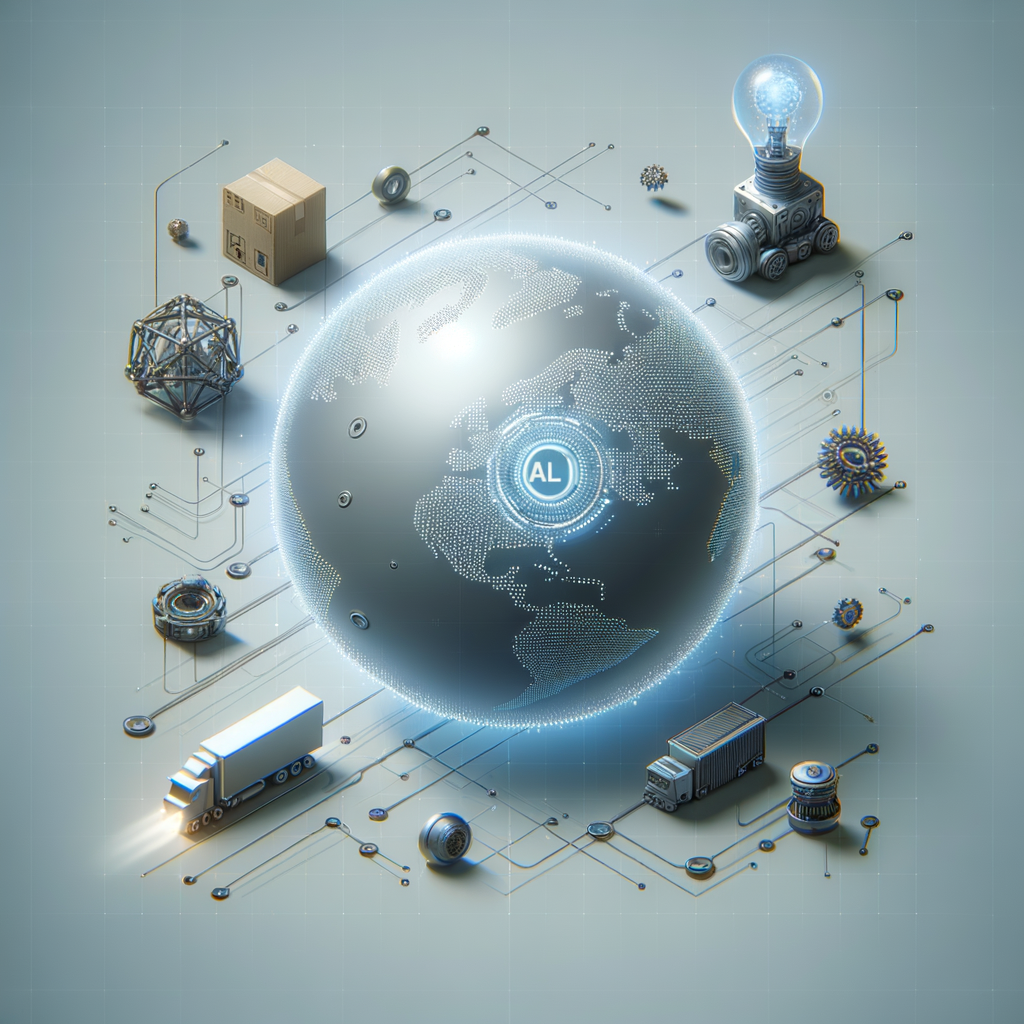
Beyond Automation: The Unexpected Ways AI is Transforming Supply Chains
Explore how AI is revolutionizing supply chains in unexpected ways. Discover the technological innovations enhancing transparency, sustainability, and efficiency in global trade logistics. This blog delves into the transformative impact of AI, featuring case studies, expert insights, and future predictions. Learn how AI is not just automating but redefining the very essence of supply chain management.
Beyond Automation: The Unexpected Ways AI is Transforming Supply Chains
In recent years, Artificial Intelligence (AI) has proven to be a transformative force in numerous industries. While its role in automation is well-documented, a less-discussed yet equally groundbreaking influence of AI is its impact on global supply chains. This transformation isn't solely about improving efficiency through automation; it's about redefining how goods move from manufacturers to consumers in smarter, more adaptive ways.
Introduction
Supply chains today are complex, spanning continents and involving myriad stakeholders. Traditionally, managing these vast networks relied heavily on manual oversight and decision-making. However, as global trade grows in scale and complexity, traditional methods are proving inadequate. Enter AI—an innovative tool that's not only automating repetitive tasks but also bringing unprecedented precision and intelligence to supply chain management.
AI Innovations in Supply Chain Management
1. Predictive Analytics
AI's ability to process and analyze vast amounts of data allows supply chain managers to predict market trends more accurately than ever before. Predictive analytics can forecast demand fluctuations, helping companies adjust their production schedules and inventory levels proactively.
2. Enhancing Sustainablitliy
Environmental sustainability is a growing concern in supply chain operations. AI enables companies to track their carbon footprint throughout the supply chain process, helping identify and mitigate sources of excess emissions. Technologies such as AI-driven analytics can optimize routes to reduce fuel consumption or suggest materials and suppliers with lower environmental impacts.
3. Real-time Tracking and Transparency
With AI and IoT (Internet of Things) technologies, supply chain managers have unprecedented visibility across their operations. Real-time tracking systems, powered by AI, ensure an accurate, collaborative environment where all stakeholders—from manufacturers to delivery services—can communicate effectively, sharing critical information instantly.
4. Inventory and Warehouse Management
AI algorithms can analyze sales data to predict which products will be most in demand, allowing for smarter inventory management. Similarly, AI-powered robots in warehouses can sort and move goods more efficiently than human staff, improving handling time and reducing errors.
Case Studies
Walmart’s Retail Revolution
One notable case is Walmart, which employs AI to manage its inventory systems. By integrating AI with its inventory management beyond simple restock alerts, Walmart can efficiently anticipate product demand and allocate resources, maintaining optimal stock levels with minimal human intervention.
DHL’s Smart Logistics
Another example is DHL, which has embraced AI to streamline its logistics operations. Through AI-driven predictive analytics, DHL anticipates potential delivery delays and suggests alternative routes to ensure timely deliveries. The company also uses AI tools to optimize fuel usage, cutting down on transportation costs and its carbon footprint.
Looking Ahead: Future Trends in AI and Supply Chain
While AI in supply chains has already made significant strides, the future promises even more sophisticated technologies. We foresee increased adoption of AI to further enhance supply chain resilience against disruptions, improve sustainability, and advance personnel safety with automated machinery handling hazardous tasks.
Autonomous Vehicles
As AI technology matures, autonomous vehicles—trucks, drones, and ships—are likely to become integral to supply chain operations. These vehicles will not only cut down delivery times but will also provide ecological benefits by optimizing travel routes and fuel consumption more efficiently than human drivers.
Blockchain and AI Synergy
The partnership between AI and blockchain for supply chain transparency is another exciting prospect. Blockchain’s secure, decentralized nature complements AI’s data-processing prowess, promising a future where authenticity, shipping details, and regulatory compliance can be verified in seconds.
Conclusion
The integration of AI in supply chains marks a paradigm shift from traditional, reactive strategies to innovative, data-driven approaches. Far from replacing human ingenuity, AI acts as an enhancement, allowing supply chain professionals to focus on strategy and innovation, leading to smarter decision-making and better resource utilization.
By embracing these technological advancements, companies can not only keep pace with evolving market demands but also champion sustainable practices, paving the way for an industry that's not only more efficient but also more responsible.